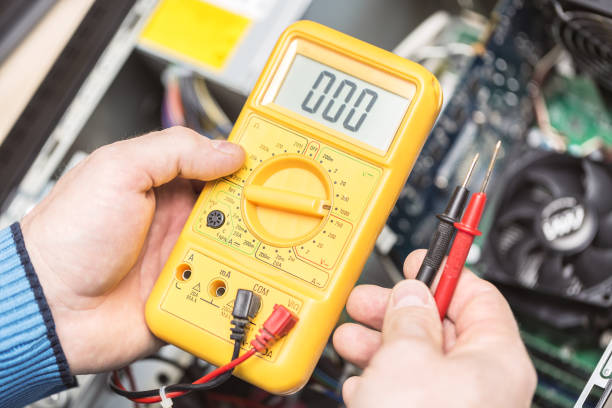How Many Watts in Car Battery wattage is crucial for those with customized vehicles or aftermarket electronic additions, ensuring that the battery can handle increased power requirements without compromising performance.
Understanding the power reserve in your car battery is crucial for ensuring reliable vehicle operation. The measure of how much electricity a car battery can store is typically reflected in watt-hours (Wh), which is the product of the battery’s amp-hours (Ah) and its voltage (V).
High-quality vehicle batteries are pivotal in starting engines and powering electrical components. A standard 12-volt car battery charged to its maximum capacity can deliver enough watts to start your engine and run essential electrical equipment.
Drivers need to know their battery’s specifications, as this helps maintain proper function and avoid unexpected breakdowns due to power issues. Regular maintenance and check-ups can extend the longevity and functionality of the battery in your car, ensuring long-term reliability.
Introduction To Car Battery Power
Introduction to Car Battery Power is a crucial concept for every car owner to grasp. Understanding the wattage of your car battery can help you gauge its performance and capabilities.
In this section, we explore the basics of car battery power and the significance of watts in determining battery efficiency. Grasping these concepts can ensure your vehicle functions smoothly and reliably.
Understanding Battery Basics
A car battery is the powerhouse of your vehicle, providing the necessary juice to start the engine and power electronic devices. In essence, batteries store and deliver electrical energy as needed. Key components include the voltage, amperage, and overall capacity, typically measured in amp-hours (Ah). Together, these elements determine the power a battery can provide.
- Voltage: Indicates electrical pressure, with most car batteries rated at 12 volts.
- Amperage: Reflects the electric current, directly affecting how much power your battery delivers.
- Amp-hours: Represents a battery’s energy storage capacity, providing a snapshot of potential energy.
The Role Of Watts In Battery Performance
Watts is the unit of power defining a battery’s energy rate over time. It’s the product of volts and amps, indicating total power. Car batteries are not typically rated in watts because their primary purpose is to start the car, which requires a burst of power delivered in amps.
Understanding car battery watts can help determine your vehicle’s energy needs. It’s crucial to power accessories like sound systems or chargers, especially when using your car. For example, a car battery might provide around 600 to 1,000 watts when starting the car.
| Car Battery Component | Function in Relation to Watts |
|---|---|
| Voltage (V) | Provides potential energy for electrical current. |
| Amperage (A) | Indicates current strength, higher amps equal more power. |
| Watts (W) | Defines total power output, showing energy provision rate. |
Demystifying The Wattage Of A Car Battery
A car battery is just another part of your vehicle. Understanding its wattage is crucial for performance and maintenance. Let’s unveil the power behind the battery. We’ll explore how watts relate to the battery’s ability to start your car and run the electrical systems.
Voltage And Amperage: The Building Blocks Of Watts
To grasp battery wattage, you must know voltage and amperage. Voltage measures electrical force. Amperage measures the flow of electric current. Together, they create watts.
- Voltage (V) – It’s like pressure from a water hose.
- Amperage (A) – It’s like the water flowing through the hose.
Calculating The Wattage Of A Typical Car Battery
To find the wattage, multiply voltage by amperage. A typical car battery is 12 volts. It may offer 48 amp hours (Ah). Here’s how we calculate:
| Voltage (V) | Amperage (Ah) | Wattage (W) |
|---|---|---|
| 12V | 48Ah | 576W |
Factors Affecting Car Battery Power Output
Several factors can alter your car battery’s wattage. These include:
- Temperature – Cold or heat impacts performance.
- Age – Older batteries tend to lose capacity.
- Usage – Frequent short trips may not recharge the battery fully.
Always check these factors to ensure your battery delivers optimal power.
Comparing Car Battery Wattages
Understanding the wattage of a car battery is crucial for assessing its capability. A higher wattage can mean more power and longer life. Let’s explore and compare various car battery wattages to help you grasp their differences and applications.
Standard Car Batteries Vs. High-performance Batteries
Cars usually come with a standard battery designed to meet basic requirements. When fully charged, these are generally 45-60 amp-hours, translating to 540 to 720 watts. In contrast, high-performance batteries provide higher wattage.
They power luxury vehicles and support extra electronics. High-performance options often start from 70 amp-hours, or 840 watts, and can climb significantly higher.
How Battery Size And Type Influence Wattage
The size of a battery directly affects wattage. A larger battery has more cells and thus can store and deliver more power (wattage). The type of battery, whether lead-acid or AGM (Absorbent Glass Mat), also plays a role. AGM batteries often provide higher wattage than standard lead-acid batteries. Here is a simple guide:
- Small car battery: 40-50 amp-hours, 480-600 watts
- Medium car battery: 50-65 amp-hours, 600-780 watts
- Large car battery: 65-100 amp-hours, 780-1200 watts
The Impact Of Technology Advancements On Battery Power
As technology progresses, car batteries become more efficient. This means more wattage from smaller units. Advancements like Lithium-ion technology result in lightweight batteries that pack a powerful punch.
Some can offer watts in the thousands despite being smaller than traditional batteries. Expect a growing trend toward higher-wattage batteries as technology advances.

Credit: www.reuters.com
Practical Insights And Maintenance Tips
Understanding car battery wattage plays a crucial role in vehicle care. With knowledge about car battery power, owners might avoid unexpected breakdowns. This section details practical insights and maintenance tips to help ensure your car battery functions efficiently for as long as possible. Maintaining your car battery provides a more reliable ride and saves you money.
Maximizing The Wattage And Lifespan Of Your Car Battery
Keep it Clean: Regularly remove corrosion from the terminals.
Secure it Firmly: Ensure the battery is mounted correctly to avoid vibrations.
Regular Charge: Keep your battery fully charged to prevent sulfate buildup.
Correct Use: Avoid short rides that don’t allow the battery to charge fully.
-
A battery with higher wattage provides more power to start your car. Treat your car’s electrical system well to ensure the battery lasts longer.
Common Misconceptions About Car Battery Wattage
| Misconception | Reality |
|---|---|
| More Watts Equals More Power | Only if your car requires it, otherwise it’s just more cost. |
| A Dead Battery Recharges Itself Over Time | Batteries lose charge with time, they don’t regain it. |
| All Cars Need the Same Watts | Each vehicle has specific wattage requirements based on design. |
It’s common to misjudge how battery wattage influences car performance. Knowing the truth helps in selecting the correct battery for your vehicle.
Essential Maintenance For Sustaining Battery Health
- Inspect the battery regularly for signs of damage or wear.
- Check the fluid level and top it off with distilled water if needed.
- Have the charging system checked annually by a professional.
- Replace batteries older than three to five years, as they are prone to failure.
Following these essential maintenance steps can extend your car battery’s life. Take your time with the warning lights; proactive care is vital.
Conclusion: The Significance Of Understanding Your Car Battery’s Wattage
Knowing your car battery’s wattage is vital. It helps keep your car running smoothly.
Wattage links to your vehicle’s electrical power needs. A correct match ensures efficiency.
Think of your car’s battery as its heart. Just like a heart pumps blood, your battery powers the car.
Making Informed Decisions For Battery Replacement
Smart choices matter when your car battery needs changing. Compare wattage for the best performance.
Look at these points for intelligent shopping:
- Your vehicle’s energy needs
- Wattage ratings on batteries
- Climate and your driving habits
The Future Of Car Battery Technology And Wattage
Emerging technologies transform battery wattage. More power with less weight is the goal.
| Technology Type | Benefits |
|---|---|
| Lithium-ion | High efficiency, more charge cycles |
| Solid-state | Safer, longer life, faster charging |
Recycle old batteries. Choose green options for a greener future. Innovations keep making cars better.

How many watts in car battery lithium
The wattage of a car battery is not typically specified in terms of watts. Instead, car batteries are commonly rated in terms of voltage and capacity. A standard car battery usually has a voltage of 12 volts.
The capacity is typically measured in ampere-hours (Ah) or milliampere-hours (mAh).
If you are looking for the power output of a car battery in watts, you can use the formula:
Power (watts) = Voltage (volts) x Current (amperes)
Remember that the power output may vary depending on the state of charge and other factors. Provide the capacity of the lithium car battery in ampere-hours.
I can help you calculate the potential power output in watts using the formula mentioned above.
Frequently Asked Questions On How Many Watts In Car Battery
What Is A Car Battery’s Typical Wattage?
Car batteries are usually rated in ampere-hours (Ah), not watts. However, a typical car battery might have about 48 ampere-hours and 12 volts, which equates to roughly 576 watt-hours. It’s important to note that wattage output will vary during operation.
How To Calculate Car Battery Power In Watts?
To calculate the power of a car battery in watts, multiply the battery’s voltage (typically 12V) by the current it delivers during an hour. For example, a 12V battery rated at 50Ah would produce 600 watts for one hour (12V x 50Ah = 600W).
Can A Car Battery Power A Home Appliance?
Yes, a car battery can power a home appliance. However, it must be compatible with the device’s voltage requirements and supply sufficient wattage. An inverter may be necessary to change the appliance’s power from DC to AC.
What Affects A Car Battery’s Watt Output?
A car battery’s watt output is affected by its state of charge, age, and temperature. The battery’s internal resistance can also impact the output, which increases as it degrades.
Conclusion
Understanding your car battery’s wattage capacity is crucial for maintaining vehicle performance. Be sure to consult your manual for the exact specifications. Regular checks can prevent power failures and ensure your journeys are worry-free. Remember, a knowledgeable car owner is an intelligent driver.
Stay charged and ready to hit the road!

I am a technology Specialized writer and blogger based in the USA & UK. I have four years of experience in Technology, Social Media and all types of Battery’s like Solar Battery,Car Battery,Lithium Battery etc. So I work on solving these issues and give various tips on these issues.
